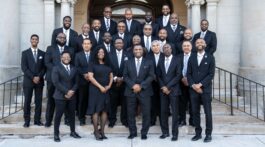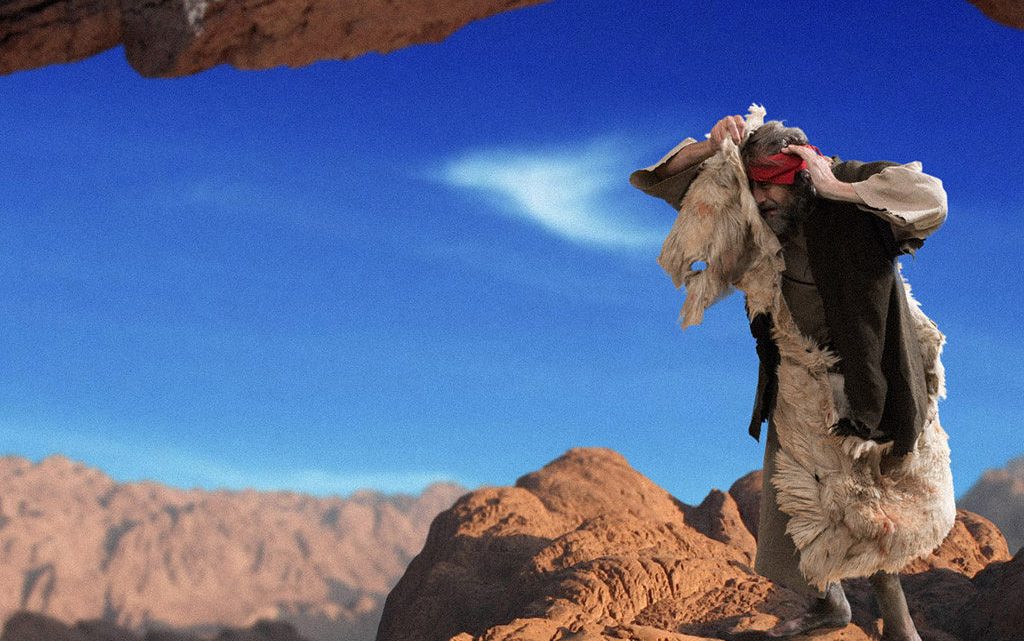Elijah had prayed that it would not rain, and in faith had confronted King Ahab, declaring that it would not rain. For 3 ½ years, no rain fell. During this time, Elijah took refuge in the wilderness first, and in the home of a widow. God miraculously supplied him with food and water during this time.
At the end of this period, he confronted the prophets of Baal at Mount Carmel to demonstrate once and for all who brought the rain: Baal, or Yahweh. And God had responded in an unmistakable manner, fire from heaven consuming the wood, the sacrifice, the water in the ditch surrounding the altar, and the very stones of the altar themselves!
This is followed by a tremendous rain storm, so heavy that Elijah had to run before the king’s chariot, since the charioteer could not see the road through the curtains of raindrops. And after all this, Jezebel, the queen of Israel who worshiped Baal, threatened Elijah’s life. Physically, emotionally, and spiritually spent, Elijah ran for his life. He ran from the north of Israel to the southernmost part of Judah, to Beersheba. Leaving his servant there, he ran another 41 days into the wilderness, finally taking refuge in a cave on the slopes of Mount Horeb.
There, God asked him a simple question, “What are you doing here, Elijah?”
Elijah responds with a cascade of self-justifying words, culminating with the admission that he feared for his life.
The whole scene reminds us of Moses on Sinai for 40 days, and at the end of the time requesting to see God. God, the text tells us, hid Moses in the cleft of the rock, and passed before him. What he “showed” Elijah was a procession of his love and mercy. So now we have Elijah, in the cave on Mount Horeb — Horeb and Sinai are the same mountain — and God tells him to come to the opening of the cave. There follows three unmistakable manifestations of God’s power: a mighty wind that splinters rocks, an earthquake that shakes the mountains themselves, and then fire.
To the ancients, there could be no question that such events resulted from the activity of God himself. In fact, many cultures believed they were four fundamental elements: air, water, earth, and fire. So Elijah has experienced the amazing power of God in all four of these elements. On Horeb he saw the power of air in motion, the whirlwind; the powerful earth quaking; a raging fire. And after Mount Carmel’s demonstration of fire from heaven, he had seen water fall from the sky as rain. So Elijah has seen the power of God in all of the fundamental elements: in the air, the earth, in water, and in fire.
But God, the text tells us, was not in the great wind, the earthquake, or the fire. These were manifestations of his great power, but they were not Him. And then, as The Message renders it, Elijah hears “a gentle whisper,” a whisper which is the voice of God.
Why is God in the gentle whisper? And why not in the spectacular demonstrations of power in the elements?
For the same reason that, in almost every case, a ministry which begins with numerous miraculous demonstrations, eventually they become less common and then essentially absent. Time and again, whether it’s the Old Testament prophets, or the New Testament church after Jesus’ ascension, Or Even in the Adventist Movement. Initially there are multiple significant exhibitions of miraculous power. But over time they become fewer in number until they appear to be largely absent.
God knows that we can become addicted to the spectacular, to the sensational. We can come to where we only see him in the unusual, the remarkable. But no one can live in a state of continual stimulation — we would burn out. And that is what has happened to Elijah. His headlong, unreasoning flight demonstrates his state of burnout, of spiritual, emotional, and physical exhaustion. He can no longer face such a life, which is why he asks to die.
God exhibits his great power of nature, and then comes in the gentle whisper to help Elijah recuperate, to recalibrate, to reacquaint himself with real life. For so long, Elijah has seen God only in the spectacular to the point where he no longer can see God in the ordinary.
We all face this challenge from time to time. We may read a book which renews our spiritual enthusiasm, attend a conference or a particularly spirit-filled worship service, and find it difficult to leave that so-called “mountaintop” experience and return to everyday life. If the spirit of power of God are only present in the spectacular, then he is absent most of the time. Yet the apostle Paul says “in him we live, and move, and have our being.” As Christians, our very existence is to be permeated with the consciousness of God’s presence in our lives.
Even the doubters can see God in the spectacular; even the skeptical will turn to God in emergency; but the test of faith is to see him in the ordinary, in the every day, in the commonplace — to hear his gentle whisper.
Everyone, even the priests of Baal, had seen the power of God as a consume the sacrifice, the water, and the very stones of the altar on Mount Carmel. Most of Israel saw his power in the rain that followed. But God needs us to see him every day; needs us to hear his gentle whisper as we carry out our routine.
And that is the lesson of the seen and the unseen for Elijah. At first, Elijah had recognized and trusted in the power of God to honor his promises, and answer Elijah’s prayers, to the point where Elijah went to Ahab’s court and declared that God would stop the rain. Elijah had seen what the rest of Israel had not seen, what was to them unseen. And Elijah’s faith and trust was strong enough not only to challenge the king, and to challenge the priests of Baal, but to bring about a reformation has Israel witnessed the power of the true God.
But then, at the peak of his success, Elijah heard the threats of Jezebel, and his faith wavered. And thus he found himself at Mount Horeb. He had spent 42 months of drought a fugitive from Ahab, and his faith had never wavered. But a single threatening message from Jezebel, and he spent 42 days in flight, and wishing to die for fear.
Elijah had become so accustomed to the dramatic and visible manifestations of God’s power, that he had lost sight of the God of the every day.










